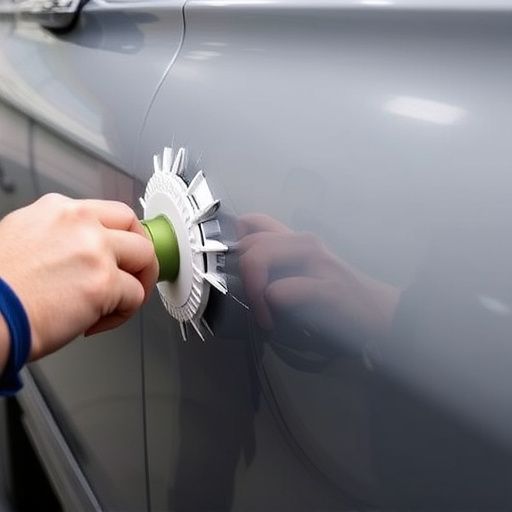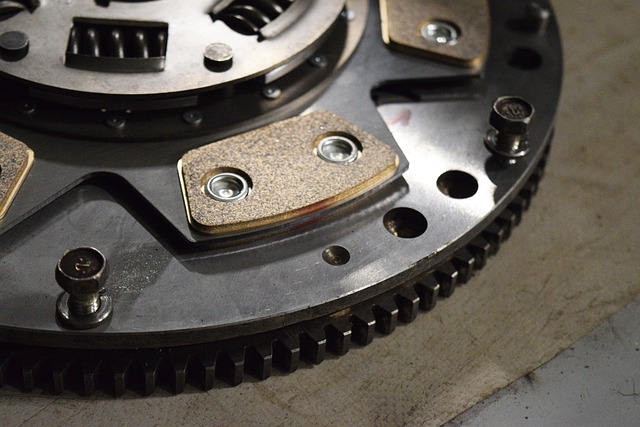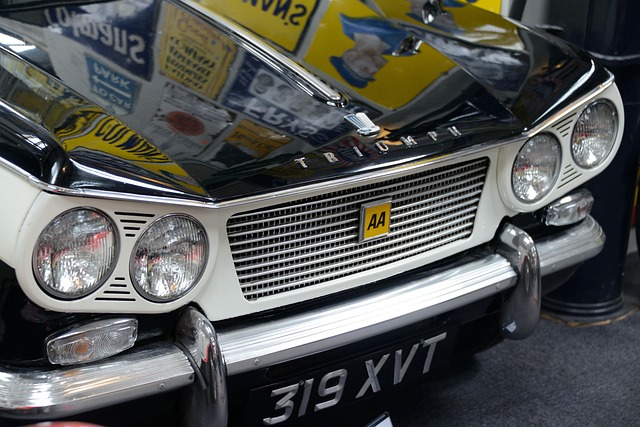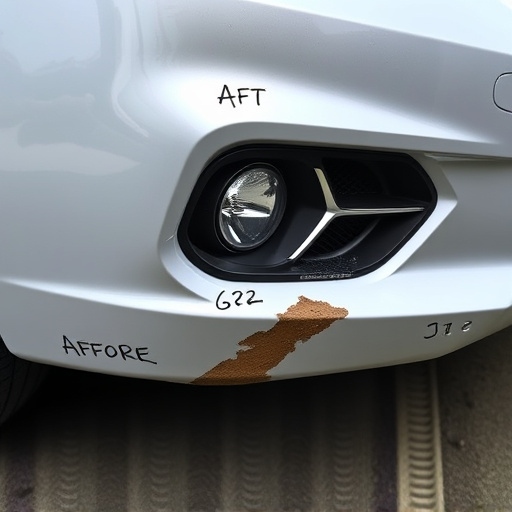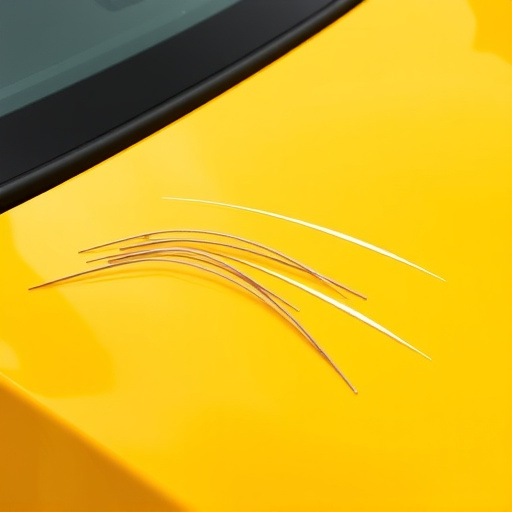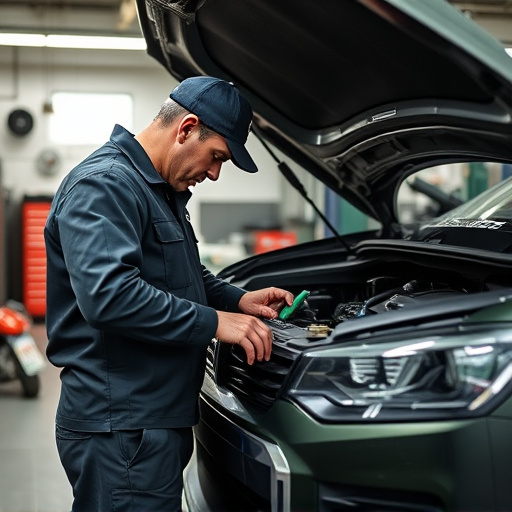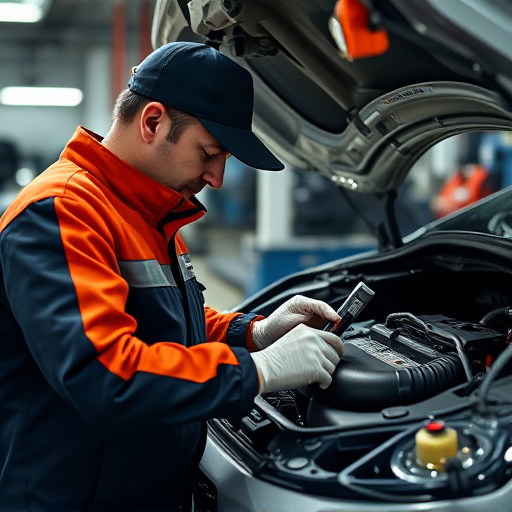The future of airbag module replacement is being shaped by technological advancements in automotive safety. Modern airbags use smart sensors for tailored deployment, advanced materials for faster and safer activation, and machine learning algorithms for precise force during collisions. This evolution presents challenges for collision repair services, which need specialized tools, skilled technicians, and seamless integration of new technologies with paint and dent repair processes. Car body shops play a crucial role in adopting these innovations to ensure both safety and aesthetic restoration, transforming not only airbag functionality but also approaches to cosmetic repairs like car scratch removal.
The future of airbag module replacement is an evolving landscape driven by technological advancements and environmental considerations. As the automotive industry shifts towards smarter, safer, and more sustainable vehicles, innovative solutions are transforming how we approach airbag technology and its replacement processes. This article explores cutting-edge developments in airbag design, smart integration, and AI-driven accident prediction. Additionally, it delves into efficient, eco-friendly replacement methods, sustainable materials, and global efforts to enhance automotive recycling. Furthermore, it discusses future prospects, including advanced robotics, personalized protection, and the integration of airbags with autonomous driving systems, shaping a safer and greener future for all road users.
- Advancements in Airbag Technology
- – Exploring innovative airbag designs and materials
- – Smart airbags: Sensor integration for enhanced safety
Advancements in Airbag Technology
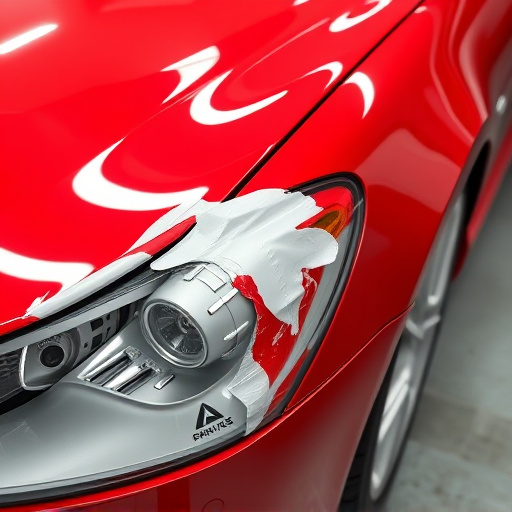
The future of airbag module replacement is being shaped by significant advancements in technology designed to enhance safety and efficiency. Modern airbags have evolved beyond their initial design, incorporating smart sensors that detect crash severity and deployment patterns more accurately. This allows for tailored responses, ensuring optimal protection without unnecessary activation or damage to vehicle components. Advanced materials are also playing a crucial role, with lighter and stronger fabrics improving deployment speed and reducing the impact of airbag inflation on passengers.
These developments have profound implications for collision repair services. As vehicles become increasingly complex, so does the process of replacing airbags. Specialized tools and expertise are required to handle advanced airbag modules, pushing the demand for skilled technicians and specialized equipment. Moreover, integrating these new technologies seamlessly with vehicle paint repair and car dent repair processes is essential to ensure both safety and aesthetic restoration after a collision.
– Exploring innovative airbag designs and materials
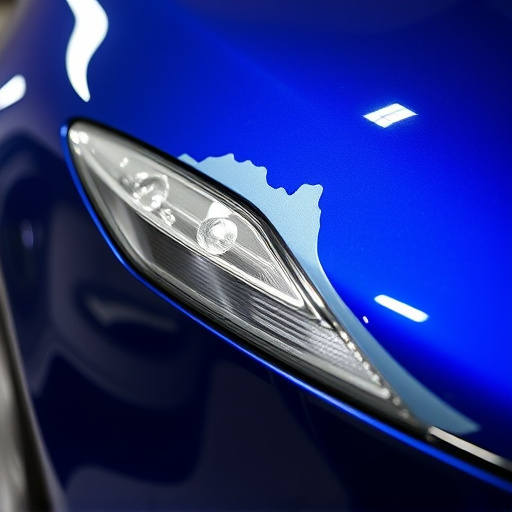
The future of airbag module replacement technologies is ripe with innovation, as automotive engineers and designers explore new approaches to enhancing safety while streamlining repair processes. One area of focus is developing advanced airbag designs tailored for specific vehicle types and driver needs. These could include side airbags that offer better protection without adding significant bulk, or front airbags that deploy in a more controlled manner to minimize the risk of secondary injuries.
Additionally, researchers are investigating novel materials for airbag construction, aiming to create lighter, stronger, and more durable components. Lighter airbag modules not only reduce fuel consumption but also minimize the overall weight of vehicles, making them safer in case of accidents. Car body shops and paint services can play a pivotal role in this evolution by adopting new technologies for efficient dent removal and precise car paint repair, ensuring that replaced airbag modules seamlessly integrate into the vehicle’s original design and safety system.
– Smart airbags: Sensor integration for enhanced safety
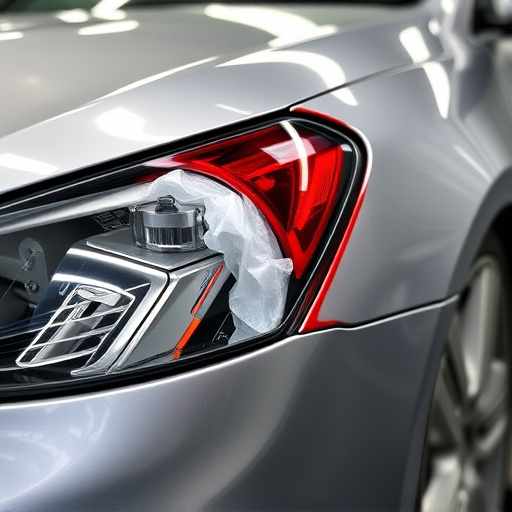
The evolution of airbags has led to the development of “smart” airbags that go beyond basic deployment mechanisms. By integrating sensors and advanced technology, these innovative airbag modules can respond more effectively to collision scenarios. Smart airbags use impact sensors, accelerometers, and even machine learning algorithms to detect the severity and nature of a crash, enabling them to deploy at optimal times and with precise force. This not only enhances passenger safety but also reduces the risk of secondary injuries caused by improper deployment.
In the realm of airbag module replacement, smart airbags offer significant advantages for car body shops and auto bodywork specialists. Their advanced sensor integration allows for more tailored responses, minimizing damage to vehicles while maximizing protection for occupants. This technology is revolutionizing not only airbag functionality but also the way car scratch repair and other cosmetic issues are addressed in modern vehicle maintenance, ensuring a safer and more efficient experience for all involved.
As we look towards the future of automotive safety, advancements in airbag technology play a pivotal role. The exploration of innovative designs, materials, and the integration of sensors in smart airbags promise to enhance protection for all passengers. These developments in airbag module replacement technologies not only cater to improved safety standards but also demonstrate a forward-thinking approach, ensuring that vehicles remain equipped to handle modern driving conditions and passenger needs.
